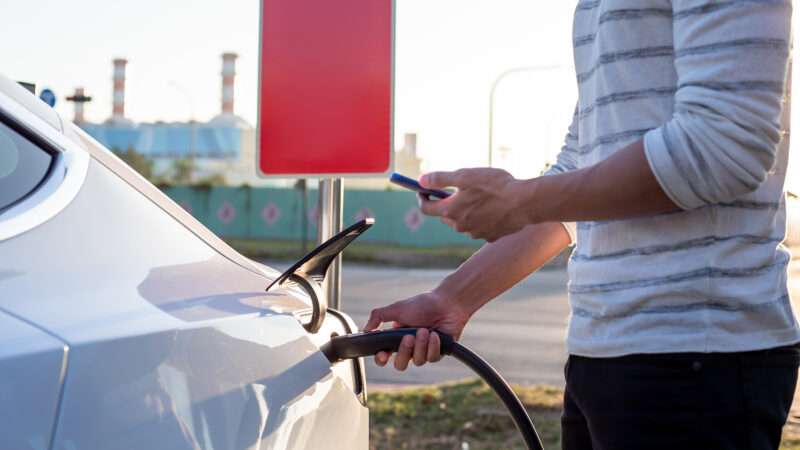
After a marathon overnight session, the Senate passed the Inflation Reduction Act on a party-line vote Sunday. The bill apportions $740 billion for a grab bag of Democratic spending priorities in the name of combating inflation. One item on the list: tax credits for purchasing electric vehicles (EVs).
There's a problem: No cars exist that qualify for the credits.
Currently, new electric vehicles (either hybrid or all-electric) qualify for a rebate of up to $7,500, limited to 200,000 rebates per manufacturer; Tesla and General Motors have hit the cap and no longer qualify. The new bill removes the cap, and it also introduces a $4,000 credit that can be applied to used EVs.
The bill also puts restrictions on which EVs can qualify. Starting in 2024, an EV that qualifies for the full rebate amount must source at least 40 percent of its battery's components—including minerals such as lithium, cobalt, manganese, and graphite—from either the U.S. or a country with which the U.S. has a trade agreement. Also starting in 2024, no minerals can be sourced from a "foreign entity of concern," such as China.
The stipulation was part of a compromise with Sen. Joe Manchin (D–W.Va.), whose support was critical to the bill's passage. Manchin insisted that the bill take a hard line on China, telling reporters: "I don't believe that we should be building a transportation mode on the backs of foreign supply chains. I'm not going to do it."
But 60–80 percent of EV batteries' mineral ingredients are controlled by China. That country currently produces 76 percent of the world's lithium-ion batteries, while the U.S. produces only 8 percent. Despite ambitious plans to scale up, the U.S. and Europe together will likely account for only about a quarter of total global production of EV component minerals by 2030.
Not that any of this was news: Last week, Reuters reported that multiple automakers were complaining about the feasibility of meeting the bill's timeline. Sen. Debbie Stabenow (D–Mich.), whose state includes the U.S. auto capital of Detroit, called it "a very cumbersome, unworkable credit once the full restrictions set in."
Last year, an earlier version of President Joe Biden's Build Back Better bill included a provision that would increase the EV tax credit by $5,000 if the vehicle and battery were both manufactured in a unionized U.S. factory. At the time, only the Chevrolet Bolt qualified for the extra incentive. Now, not one single vehicle qualifies for the full rebate.
Politico suggests that the government can simply get around these strictures by issuing waivers, much as it has done for steel tariffs. In practice, steel waivers incentivized cronyism, with Washington bureaucrats picking and choosing which companies received waivers and which did not. And if a law has problems, surely the best place to deal with that is in the text of the legislation itself, not an unstated hope that the administrative state will fix the issues when they arise.
If two bills in two years have proposed electric vehicle rebate programs that would apply to virtually no cars, Democrats' electric vehicle plans are clearly at odds with reality.
The post The Democrats' New Inflation Bill Includes Tax Credits for Electric Vehicles That Don't Exist appeared first on Reason.com.







